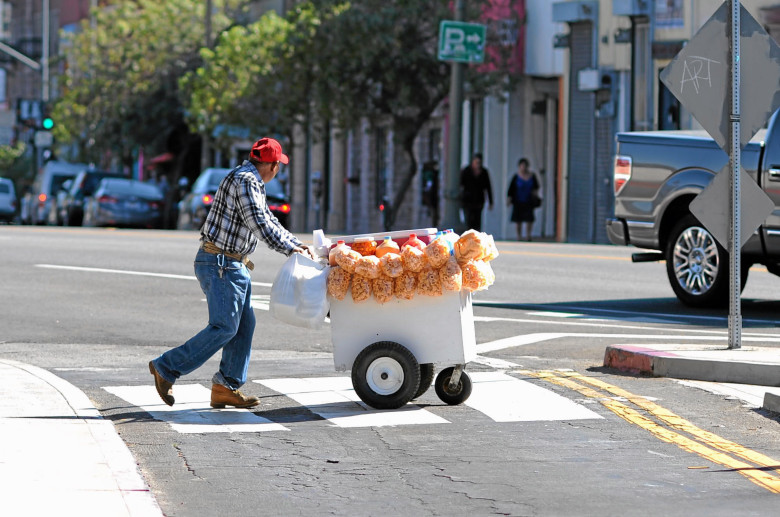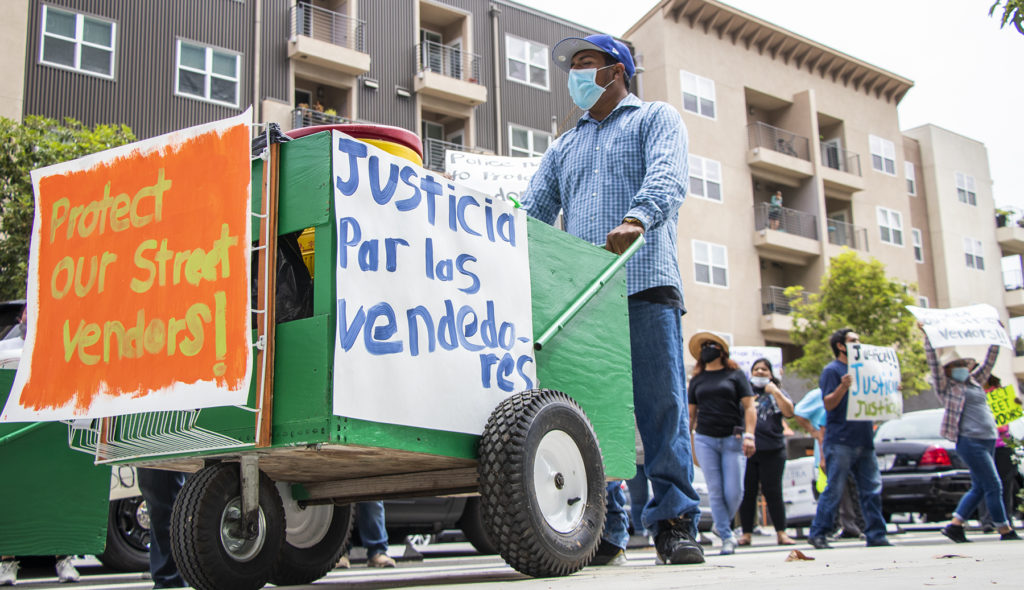
We have lived with discrimination and racism for years within our community. It is written in our history, and follows us with our past. There is no doubt that there was discrimination occurring before the pandemic, but it is also evident that the pandemic shifted our focus and shed light on issues we hadn’t seen enough in the mainstream before.
For instance, there have been many cases in Los Angeles where cops were harassing and being discriminatory towards communities of color. This type of behavior was evident before the pandemic started, but was acknowledged more in the media once the pandemic had started. These cases caught the attention of many people who started to recognize the injustices that exist in our society. An article talking about how local vendors are being attacked in Los Angeles mentioned, “Community advocates say they are seeing an increase in attacks and also seeing more people documenting the attacks, but not enough is being done to protect the vendors.”
I sought out my local street vendors to give me an understanding of the kind of discrimination they were facing, and how they had to adapt and overcome discrimination on the streets. I wanted to get a sense of their day being a vendor out in the community.

One of my local street vendors has been in my community since I was 7 years old. They reside in San Mateo County and have worked as a street vendor for over 15 years. Although I grew up with them for over 10 years, I never knew much about their life beyond the short interactions we had. I realized there are many factors, including simple things like weather, that challenge their occupation as street vendors. Hot weather makes for an exhausting day and rain prevents them from going out on the streets. I wondered, did they also face other difficulties like the discrimination I had read about?
When I asked them about the obstacles they face in their line of work, they responded, “earning the trust and respect of this community.” Upon more questions they explained, “The initial glares and stares made me feel shameful for what I was doing. But I soon realized that my work was honorable and worth doing.” In the beginning, “The community wasn’t comfortable with me, and I would constantly get stopped [by police] for no reason, as they assumed I had no permit.” In regards to the current social-political climate, they stated “Protesting and getting our community involved has made things tolerable, but discrimination is still seen on the streets.” I ended our conversation with the question of what changes they were glad to see for street vendors, “We are nowhere close the end to stop any type of discrimination, but I am grateful that people are talking about issues like these.”
